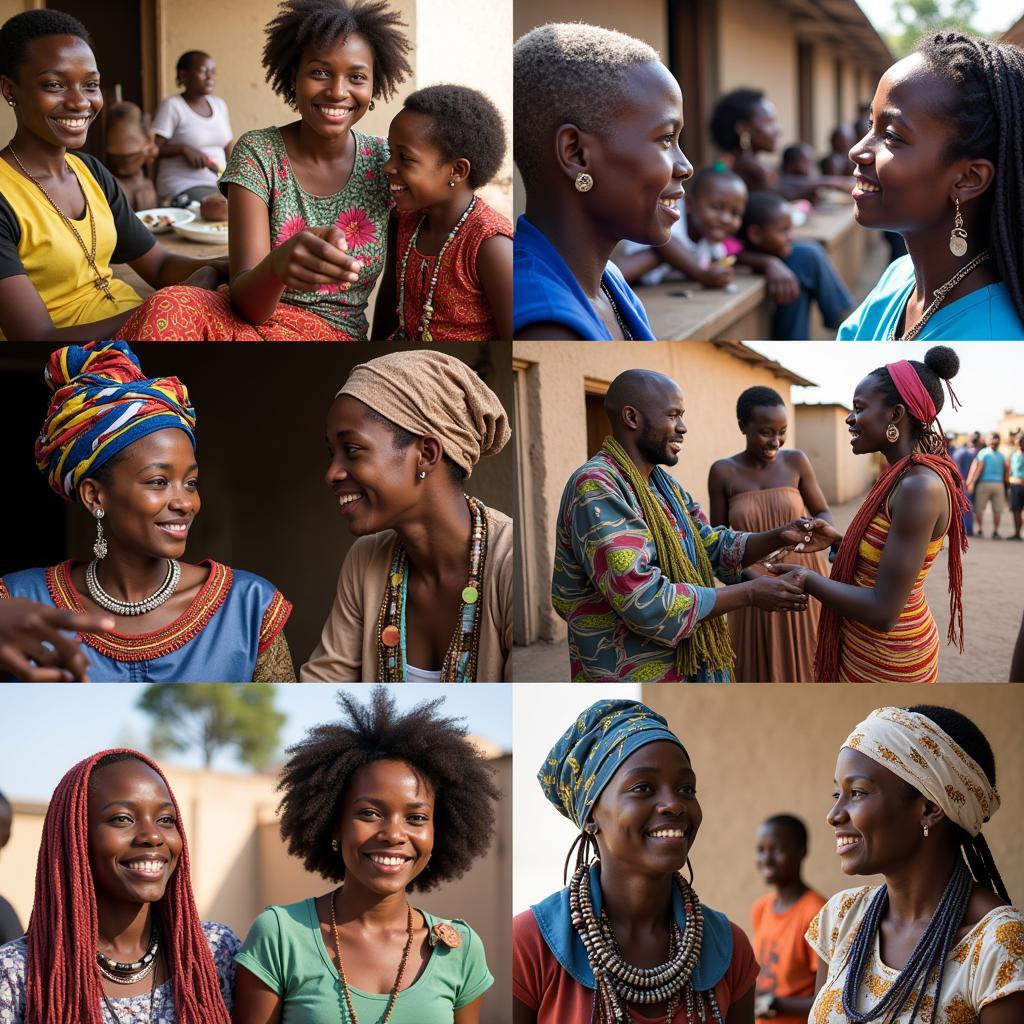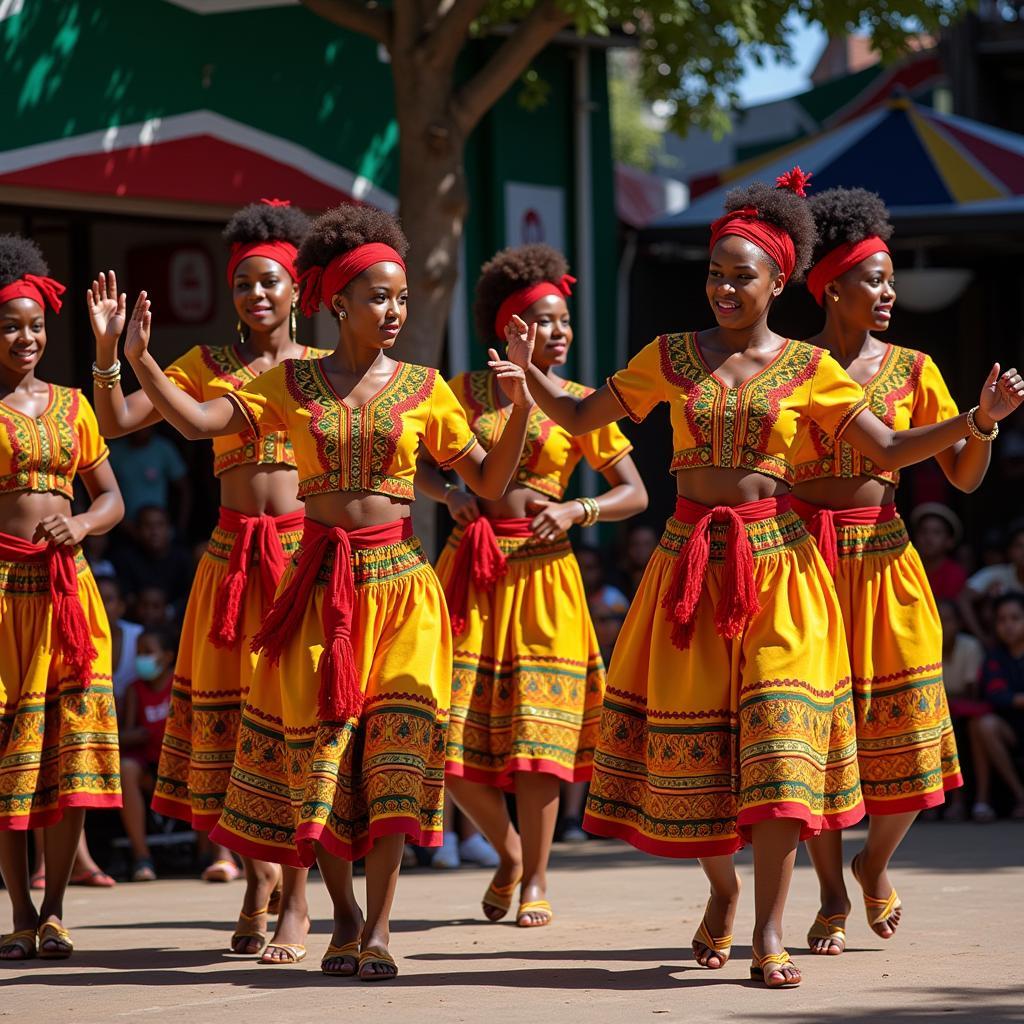African Languages and Countries: A Deep Dive into Linguistic Diversity
Africa, a continent of vibrant cultures and rich history, boasts an astounding linguistic diversity. This exploration of African Languages And Countries will delve into the intricate relationship between geography, culture, and language, revealing the fascinating tapestry of communication across this vast continent. how many african We will uncover not only the sheer number of languages spoken but also the historical and social factors that have shaped this linguistic landscape.
Unveiling the Linguistic Tapestry of Africa
The number of languages spoken across the African continent is estimated to be between 1,500 and 2,000, a testament to its incredible cultural richness. These languages are categorized into four main families: Afro-Asiatic, Nilo-Saharan, Niger-Congo (which includes Bantu languages), and Khoisan. This complex linguistic landscape is further enriched by the influence of European languages like French, English, Portuguese, and Spanish, remnants of colonial history. Understanding this diversity is crucial to appreciating the cultural nuances and historical complexities of each African nation.
African Countries and Their Languages: A Complex Interplay
Many African countries are multilingual, reflecting the diverse ethnic groups within their borders. For example, Nigeria recognizes over 500 languages, while South Africa has 11 official languages. This multilingualism presents both challenges and opportunities, fostering cultural exchange while also requiring careful navigation in official communication and education. Exploring african countries languages offers a deeper understanding of these dynamics.
How Many African Languages Are Spoken in Each Country?
The number of languages spoken within each African country varies significantly. Some countries, like Morocco, primarily use Arabic and Berber languages. Others, like Tanzania, have Swahili as a unifying national language alongside numerous other indigenous languages. Examining specific examples reveals the intricate relationship between language and national identity.
Navigating the Nuances of Language and Culture
Language is more than just a communication tool; it’s a reflection of culture, history, and identity. In Africa, language often signifies belonging to a specific ethnic group, carrying with it traditions, customs, and worldviews. Understanding these nuances is vital for respectful cross-cultural interactions. african countries and regions official languages can be a great resource to learn more about this fascinating topic.
What are the challenges and benefits of multilingualism in Africa?
Multilingualism can create challenges in areas like education and national unity. However, it also offers significant benefits, promoting cross-cultural understanding, preserving cultural heritage, and enhancing cognitive abilities. It is a complex issue with both positive and negative aspects that require careful consideration. Looking at african countries and their languages provides a helpful overview.
“Language is the lifeblood of culture,” says Dr. Abena Osei, a renowned Ghanaian linguist. “In Africa, the diversity of languages reflects the richness of human experience.”
 Language and Culture in Africa
Language and Culture in Africa
Conclusion: Embracing the Linguistic Richness of African Languages and Countries
From the bustling markets of Nigeria to the serene landscapes of Namibia, African languages and countries are interconnected in a dynamic relationship. Exploring this intricate web of communication offers a profound understanding of the continent’s diverse cultures, historical complexities, and vibrant identity. Further research into african countries in german can provide another perspective on this topic.
FAQ
- How many language families are there in Africa? (Four main families)
- What is the most widely spoken language in Africa? (Arabic, followed by Swahili and Hausa)
- Why are some African countries multilingual? (Due to the presence of diverse ethnic groups)
- What are the benefits of learning an African language? (Enhanced cultural understanding and communication)
- How does language influence cultural identity in Africa? (Language often signifies belonging to a specific ethnic group)
- What challenges does multilingualism pose in Africa? (Potential barriers in education and national unity)
- What are some resources for learning more about African languages? (Online databases, language learning apps, and academic institutions)
Need support? Contact us 24/7: Phone: +255768904061, Email: kaka.mag@gmail.com, or visit us at Mbarali DC Mawindi, Kangaga, Tanzania.


